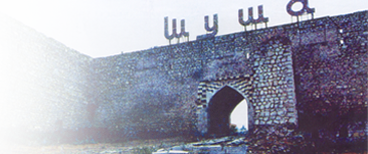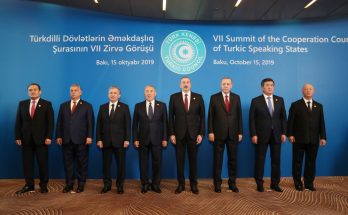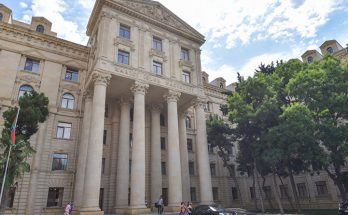
Deputy Chairman of the House of Commons of the Canadian Parliament and Chairman of the Canada-Azerbaijan Inter-Parliamentary Friendship Group Barry Devolin will discuss the issue of adopting a resolution by the Canadian Parliament in connection with the Khojaly genocide in Baku. Devolin made this statement for journalists in Baku. A Canadian delegation began its visit to Azerbaijan today.
He added that such a proposal was not discussed in the Canadian Parliament up till now.
“Discussing the issue of adopting a resolution by the Canadian Parliament in connection with the Khojaly genocide will be one of the topics during a meeting with Azerbaijani colleagues,” Devolin said.
The visit is jointly organised by the Azerbaijani embassy in Canada, the ruling New Azerbaijan Party and the Azerbaijani Parliament. Along with Devolin, the delegation also includes the member of the House of Commons Vladislav Leeson and Senators Jon Martin and Salma Attulahdzhan.
During the visit, the delegation will meet with the Speaker of the Azerbaijani Parliament Oktay Asadov and hold ’round table’ talks with representatives of various political parties. It will also participate at a meeting of the Azerbaijani Parliament to be held on April 5. The visit ends on April 7.
On Feb. 25-26 February, 1992, Armenian occupation forces together with the 366th infantry regiment of Soviet troops stationed in Khankendi (previously Stepanakert) committed an act of genocide towards the population of the Azerbaijani town of Khojaly.
Some 613 people were killed including 63 children, 106 women and 70 old men. A total of 1000 civilians were disabled during the genocide. Eight families were killed, 130 children lost one parent and 25 lost both. Additionally, 1275 innocent residents were taken hostage, while the fate of 150 remains unknown.
The conflict between the two South Caucasus countries began in 1988 when Armenia made territorial claims against Azerbaijan. Armenian armed forces have occupied 20 per cent of Azerbaijan since 1992, including the Nagorno-Karabakh region and seven surrounding districts.
Azerbaijan and Armenia signed a ceasefire agreement in 1994.The co-chairs of the OSCE Minsk Group – Russia, France and the U.S. are still holding unsuccessful peace negotiations.
Armenia has not yet implemented four U.N. Security Council resolutions on the liberation of the Nagorno-Karabakh and the surrounding regions.
/Trend/




